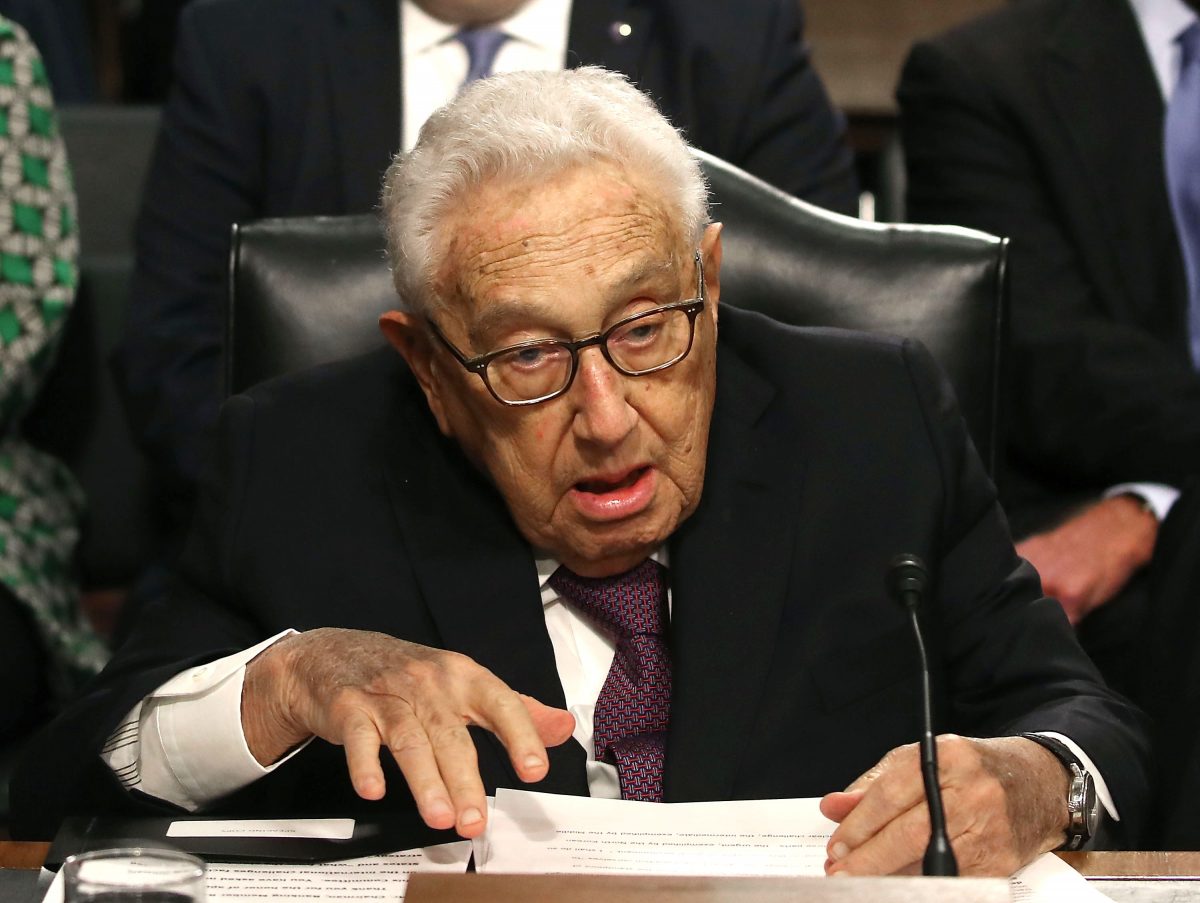MOSCOW, (Reuters) – The time is approaching for a negotiated peace in Ukraine to reduce the risk of another devastating world war, but dreams of breaking up Russia could unleash nuclear chaos, veteran U.S. diplomat Henry Kissinger said.
Kissinger, an architect of the Cold War policy of detente towards the Soviet Union as secretary of state under Republican presidents Richard Nixon and Gerald Ford, has met Vladimir Putin multiple times since he first became president in 2000.
There is no end in sight to the conflict sparked by Putin’s Feb. 24 invasion of Ukraine, which has killed tens of thousands of people and driven millions from their homes. Russia now controls around a fifth of Ukraine.
The Kremlin says Kyiv must acknowledge Moscow’s annexation of southern and eastern regions. Ukraine says every Russian soldier must leave its territory, including Crimea, which Russia annexed in 2014. Kyiv applied to join NATO after Moscow announced the annexations in September.
“The time is approaching to build on the strategic changes which have already been accomplished and to integrate them into a new structure towards achieving peace through negotiation,” Kissinger wrote in The Spectator magazine.
“A peace process should link Ukraine to NATO, however expressed. The alternative of neutrality is no longer meaningful,” Kissinger wrote in the Spectator magazine in an article entitled “How to avoid another world war”.
Kissinger said he had in May proposed a ceasefire under which Russia would withdraw to the front lines before the Feb. 24 invasion but Crimea would be the subject of “negotiation”.
The conflict in eastern Ukraine began in 2014 after a pro-Russian president was toppled in Ukraine’s Maidan Revolution and Russia annexed Crimea, with Russian-backed separatist forces fighting Ukraine’s armed forces in eastern Ukraine.
CIA Director William Burns said in an interview published on Saturday that while most conflicts end in negotiation, the CIA’s assessment was Russia was not serious yet about a real negotiation to end the war.
Kissinger, now 99, suggested that if it proved impossible to return to the status quo established in 2014, internationally supervised referendums in territory claimed by Russia could be an option.
Putin casts what he calls Russia’s “special military operation” as a watershed moment when Russia finally stood up to a Western bloc, led by the United States, seeking to capitalize on the 1991 fall of the Soviet Union by destroying Russia.
Ukraine and the West say Putin has no justification for what they cast as an imperial-style war of occupation.
Kissinger warned that desires to render Russia “impotent”, or even seek the dissolution of Russia, could unleash chaos. Neither Ukraine nor any Western state has advocated either path.
“The dissolution of Russia or destroying its ability for strategic policy could turn its territory encompassing 11 time zones into a contested vacuum,” Kissinger said.
“Its competing societies might decide to settle their disputes by violence. Other countries might seek to expand their claims by force. All these dangers would be compounded by the presence of thousands of nuclear weapons which make Russia one of the world’s two largest nuclear powers.”

